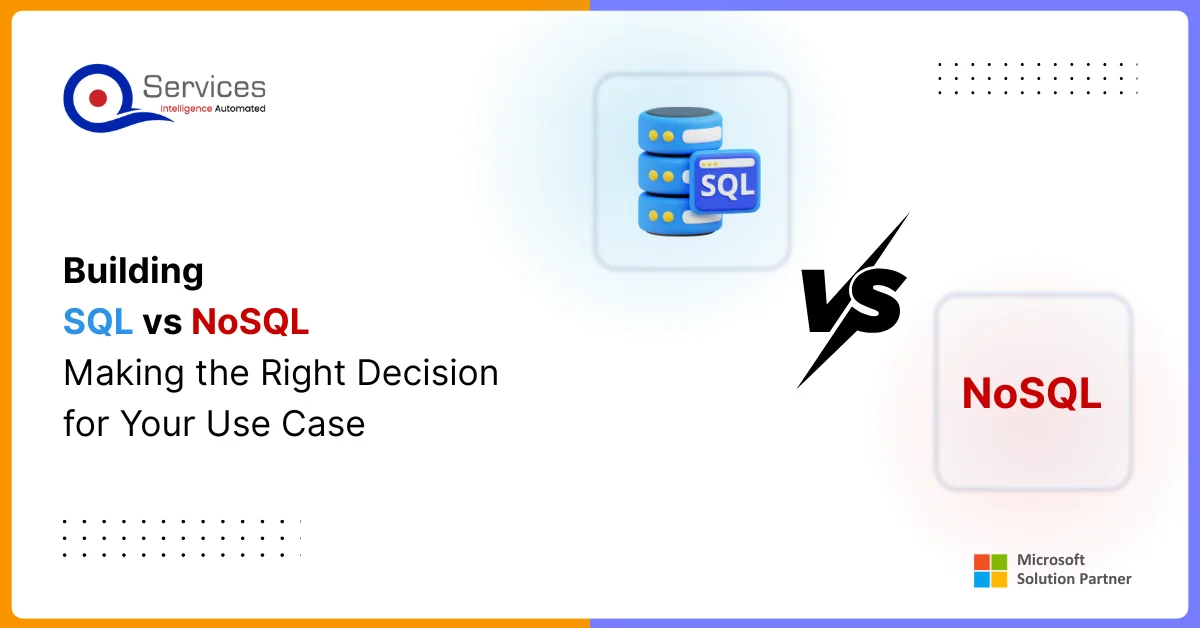
Home » Building accounting system with Azure SQL Database for complex Financial Analysis
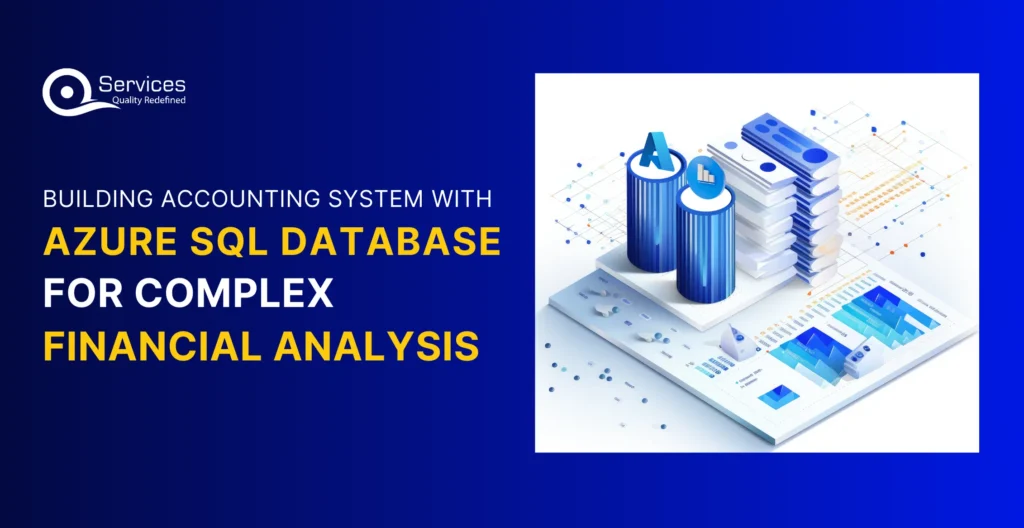
Indeed, accounting systems typically involve complex calculations. Consequently, they require the efficient handling of large volumes of financial data. Building an accounting system with the Azure SQL Database offers a powerful platform for complex financial analysis. In addition, it complements traditional tools like Excel. While Excel is widely used for its user-friendly interface and manual data manipulation capabilities, Azure SQL Database excels at handling large volumes of financial data and executing complex mathematical operations efficiently. Its optimized query processing and computation capabilities enable seamless integration with other database functionalities, allowing for the generation of diverse and insightful financial metrics.
In fact, Azure offers a comprehensive range of database solutions for data management. This variety includes several types of databases supported by Azure. To illustrate, here are some of the types of azure databases available on Azure, including Azure supported databases:
Azure Cosmos DB: A versatile NoSQL and relational database designed for real-time personalization, handling peak sales, and managing IoT data streams.
SQL Database: A flexible SQL database ideal for high-performance apps, financial systems, sales order management, and analyzing streaming data.
Database for PostgreSQL: A managed PostgreSQL database suited for enterprise app development, digital marketing, e-commerce, finance apps, and web/mobile apps.
Azure Database for MySQL: A scalable MySQL database suitable for e-commerce, web/mobile apps, digital customer experiences, finance apps, and gaming.
Database for MariaDB: A managed MariaDB database great for e-commerce, web/mobile apps, digital customer experiences, and secure finance apps.
In this blog, we will specifically focus on the role of Azure SQL Database for financial analysis.
Get free Consultation and let us know your project idea to turn into an amazing digital product.
Azure SQL Database is a fully managed, high-availability relational database service, provided by Microsoft. It runs on the latest SQL Server engine, automatically updated with 99.99% uptime. Additionally, Azure SQL Database offers advanced query processing and supports diverse data types. By offering advanced query processing and support for diverse data types, Azure SQL Database allows for easy scaling. Additionally, it comes with built-in high availability and backups. Consequently, organizations are freed from managing infrastructure and can focus on business-specific database needs.
This is a simple, fully managed service that takes care of setting up, updating, and keeping track of your databases. It lets you focus on building your apps without worrying about database management.
You can easily adjust your database size and performance based on your needs. As this database offers two ways to do this: by the amount of computing power (vCore) or by a bundled measure of performance (DTU). This flexibility helps you save money by paying only for what you use.
It always uses the latest version of the SQL Server database. This means you get access to new features and improvements as soon as they’re available, without needing to update anything yourself.
This comes with built-in security measures to protect your data. It offers features like data masking, row-level security, and threat detection. Plus, it works well with Active Directory for user access control.
The database learns from your app’s behavior to improve performance and reliability. It automatically tunes itself and makes changes to keep everything running smoothly, which means less work for you.
Can work with various types of data, like graphs, JSON, and spatial data. This flexibility means you can manage different kinds of information all in one place, making things simpler for your apps.
In addition to Azure SQL Database, the platform supports a variety of other databases to meet diverse application needs. For globally distributed applications, Cosmos DB is ideal with its NoSQL capabilities. Additionally, Database for PostgreSQL is well-suited for both open-source and enterprise app development. For those looking for scalability, Azure Database for MySQL is designed to support web and mobile apps. Additionally, Azure Database for MariaDB provides a fully managed solution for those with diverse application requirements.
Navigating the complexities of modern finance requires robust and efficient tools. Stands out as a reliable solution, offering intuitive features to address today’s financial challenges effectively. Let’s delve into how Azure SQL Database assists businesses in overcoming these obstacles.
Delivers real-time financial data insights, showcasing key metrics like income, expenses, and more. This immediate access empowers businesses to act quickly and make well-informed decisions.
From startups to large corporations, Azure SQL Database adjusts to fit your business size. Its flexibility ensures that as your business expands, the database scales with you, maintaining optimal performance for your financial needs.
Offers robust security features, including data encryption and advanced threat detection, to protect sensitive financial information. Compliance with industry regulations ensures that financial data is managed securely and in accordance with legal requirements.
Creating financial reports and visualizations is a breeze with Azure SQL Database. Its compatibility with tools like Power BI allows for seamless integration, making it effortless to generate insightful reports and share financial insights.
Automates repetitive tasks like calculations and compliance checks, reducing manual work and minimizing the risk of human errors in financial data.
For businesses requiring advanced financial modeling and analysis, Azure SQL Database offers capabilities for executing complex calculations and simulations. This supports strategic planning, risk assessment, and scenario analysis for informed decision-making.
Supports the development of flexible and tailored accounting software and financial applications. With its compatibility with modern app development practices and support for various data types, businesses can build custom financial solutions that meet their specific needs.
With flexible pricing model Azure SQL Database allows businesses to pay only for the resources they use, optimizing costs and facilitating budget management. This cost-effective approach ensures that businesses can leverage advanced financial tools without incurring unnecessary expenses.
In today’s digital age, integrating advanced technologies can greatly enhance the efficiency and accuracy of accounting systems. This offers a reliable platform for managing databases seamlessly. This blog post provides a simplified guide to help you design an effective accounting system using Azure SQL Database.
The foundation of any accounting system is its database structure. A clear and organized structure ensures that your data is stored and managed effectively. Consider creating tables like Accounts, Transactions, Users, and Financial Statements to capture essential information.
AccountID, AccountName, Type, Balance
TransactionID, AccountID, Date, Amount, Type
UserID, Username, Password, Role
StatementID, Date, Profit, Loss, Revenue, Expenses
Creating a thoughtful database structure ensures that you can easily track and report on financial data.
Once you’ve planned your database structure, the next step is migrating your existing data. Whether you prefer a full migration, or a gradual approach depends on your needs and the complexity of your data.
Align your existing data with the new structure.
Move the data to the new system while ensuring accuracy.
Consider testing the migration process with a smaller dataset to identify any issues before proceeding with the full migration.
Enhance your accounting system by adding features for financial analysis. Use SQL queries to calculate key financial metrics such as Profit, Loss, Revenue, and Expenses.
Write SQL queries to calculate specific financial metrics.
Profit, Loss, Revenue, Expenses, Cash Flow
Utilizing visualization tools can help transform your financial data into easy-to-understand visuals, aiding in better decision-making.
When managing financial data, maintaining security and compliance is crucial. Implementing strong security measures and adhering to regulatory standards are essential to protect sensitive financial information and ensure legal compliance.
Advanced encryption methods uses by Azure SQL Database to protect data both during transmission and when stored, ensuring confidentiality.
With built-in advanced threat detection, Azure SQL Database continually monitors for suspicious activities to safeguard against potential security threats.
It’s important to align your accounting system with relevant financial regulations or industry-specific standards.
Upholding data protection standards helps to reinforce measures against unauthorized access and potential breaches.
Implementing role-based access control allows for effective management of user permissions based on organizational roles and responsibilities.
Utilizing secure authentication methods, such as multi-factor authentication, enhances user identity verification.
By integrating these security and compliance measures, you establish a secure and compliant environment for your financial data.
As businesses grow, the need for a scalable and high-performance database solution becomes increasingly important to manage expanding financial data effectively.
Planning for future data volume growth ensures that your database solution can adapt to increasing demands over time.
Offers features like auto-scaling and resource provisioning to accommodate changing workloads seamlessly.
Improving SQL query efficiency and optimizing indexing can significantly enhance data retrieval speed and system responsiveness.
Implementing performance tuning techniques can improve the speed and efficiency of complex financial calculations and analyses.
Regular monitoring of database performance using tools like Azure Monitor helps identify and address potential performance issues.
Regularly reviewing and refining database configurations and query plans ensures ongoing optimal performance.
By focusing on scalability and performance optimization, your accounting system can maintain efficiency and adaptability to support growing data volumes and complex financial operations.

Azure SQL Database not only excels in financial analysis but also seamlessly integrates with various tools and services, amplifying your financial insights.
CRM and ERP Integration: Linking Azure SQL Database with CRM and ERP systems provides a consolidated view of customer data and business operations. This integrated approach enhances insights, aiding in more informed planning and decision-making.
Azure Marketplace Tools: The Azure Marketplace offers a range of ready-to-use accounting and finance tools. These can be directly integrated with Azure SQL Database, delivering valuable features without the need for custom development.
Custom Connections via Azure Logic Apps and Functions: For unique requirements, Azure Logic Apps and Functions enable tailored integrations. This customization ensures your accounting system aligns precisely with your business needs.
Azure SQL Database not only excels in managing complex financial analysis but also integrates effortlessly with various Azure services to offer a holistic solution. For organizations looking to modernize and optimize their financial systems, it serves as a cornerstone for innovation and efficiency.
To delve deeper into modernizing financial systems and navigating legacy migrations, check out “How Azure Services Can Mitigate Legacy System Migration from Banking in 2024“.
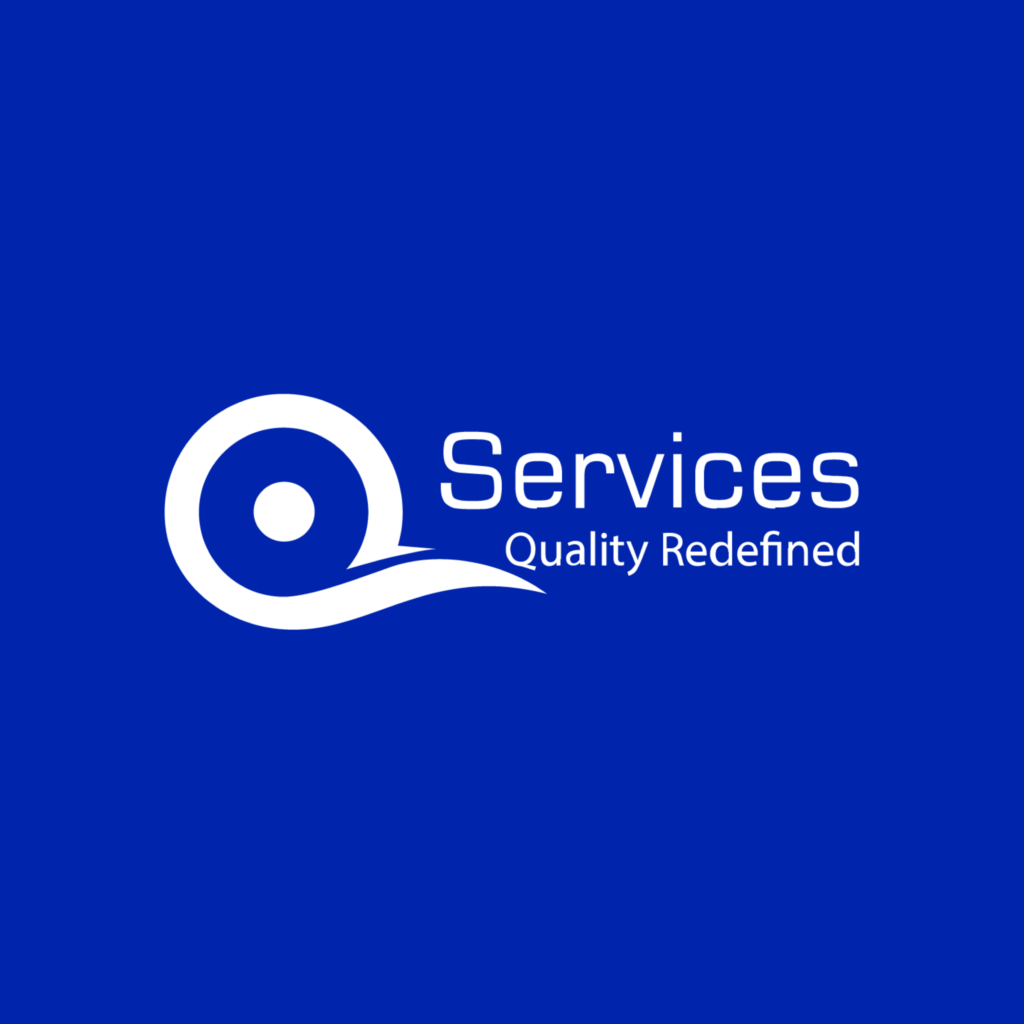
Our Articles are a precise collection of research and work done throughout our projects as well as our expert Foresight for the upcoming Changes in the IT Industry. We are a premier software and mobile application development firm, catering specifically to small and medium-sized businesses (SMBs). As a Microsoft Certified company, we offer a suite of services encompassing Software and Mobile Application Development, Microsoft Azure, Dynamics 365 CRM, and Microsoft PowerAutomate. Our team, comprising 90 skilled professionals, is dedicated to driving digital and app innovation, ensuring our clients receive top-tier, tailor-made solutions that align with their unique business needs.

Most enterprises did not choose to be here. Core systems were built to be stable, not adaptable. Over time, layers of customization, integrations, and workarounds turned reliability into rigidity. Today, every new digital initiative feels harder than it should be.
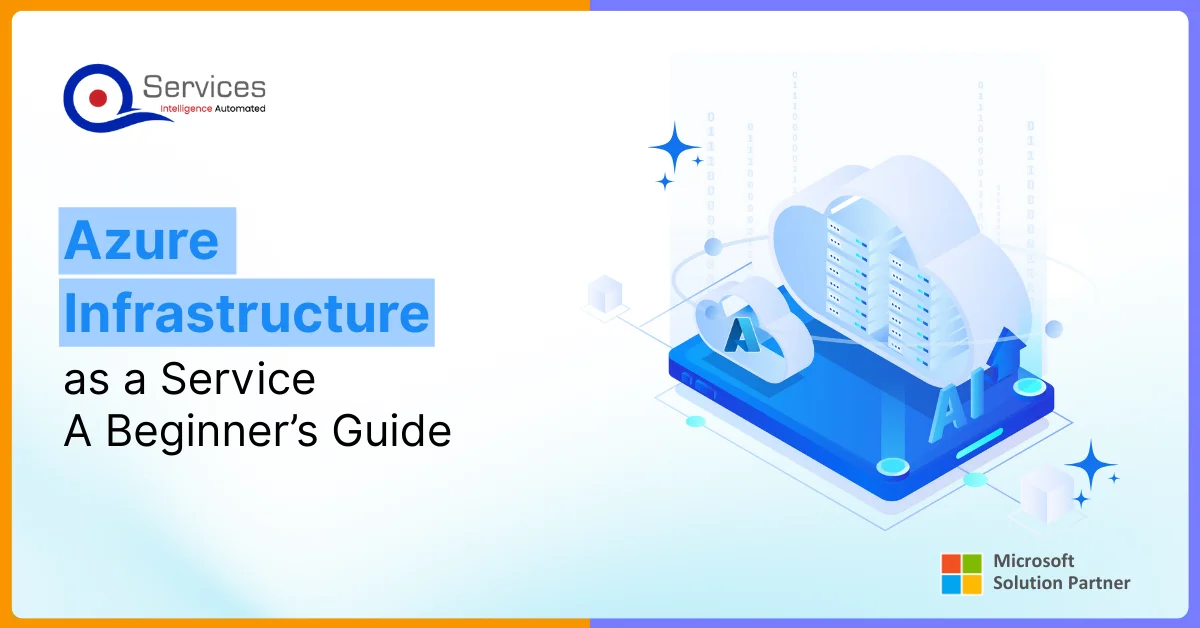
A common industry saying goes, “The cloud does not remove complexity, it moves it.” With Azure IaaS, teams gain the ability to deploy Azure virtual machines, configure networks, and manage storage in a way that closely mirrors on-premise environments. This makes Microsoft Azure IaaS especially attractive for legacy applications, regulated workloads, and hybrid cloud strategies.
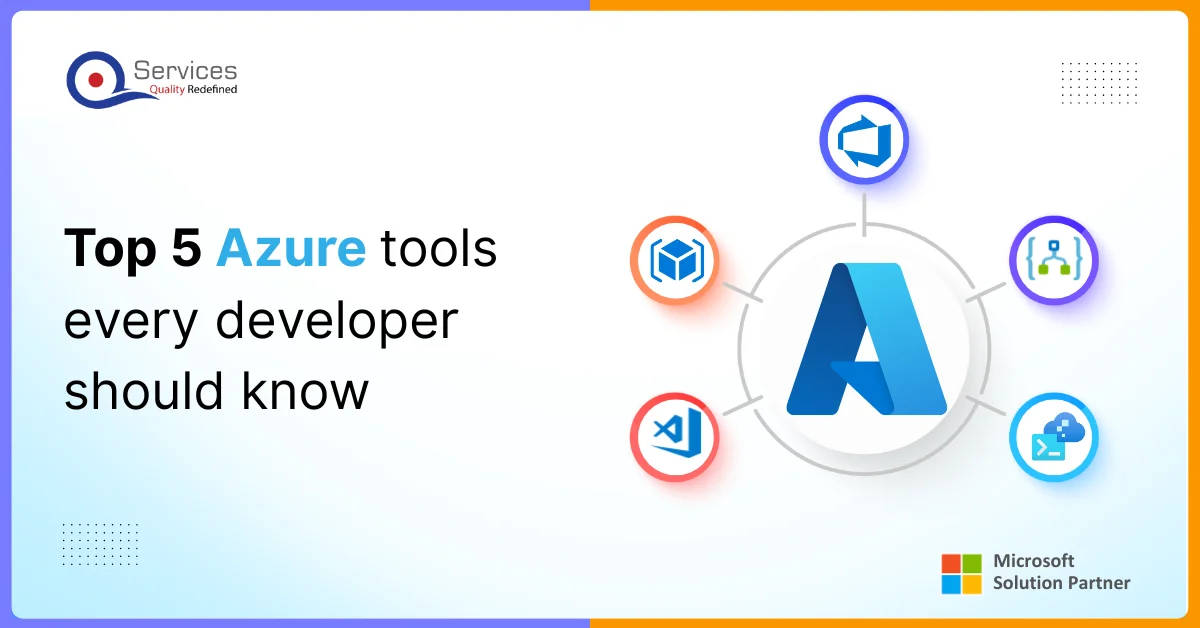
In 2026, it’s vital for every developer to be skilled in using the right set of Azure developer tools for cloud projects. Microsoft’s Azure cloud platform is at the center of this shift, providing a wide range of solutions for building and managing apps. With cloud development with Azure, teams can launch reliable apps that scale globally and respond to business needs in real time. Picking the right items from the Azure tools list can save time, money, and help you get better results.
Azure SQL Database is like a modern upgrade to traditional databases like MySQL or PostgreSQL. It comes fully managed, so you don’t have to worry about backups or updates. Plus, it scales automatically to handle more users or data without you lifting a finger. Its performance is tuned to the cloud, making queries run faster. And it seamlessly works with other Azure services, giving you more flexibility and power for your applications.
Azure SQL offers built-in sync capabilities to keep data synchronized across multiple databases, whether they’re on-premises or in the cloud. This feature helps maintain consistency and availability of data across different environments.
Azure SQL Database integrates with various third-party tools for enhanced financial insights, including:
Organizations can ensure a smooth migration of financial data to Azure SQL Database by planning the migration, testing with a smaller dataset first, ensuring data mapping alignment, and leveraging Azure’s migration tools and services.
Using Azure SQL Database, organizations can generate various financial metrics and insights such as profit and loss statements, revenue forecasts, expense tracking, cash flow analysis, budgeting, and real-time financial reporting.
Azure SQL Database efficiently manages large volumes of financial data by providing optimized query processing, flexible scaling options, and high-performance computing capabilities. Its advanced features like automatic indexing, in-memory technologies, and intelligent query optimization ensure fast data retrieval and processing, even with extensive datasets. Additionally, its built-in high availability, backups, and security features streamline data management, ensuring data integrity and reliability.

Founder and CEO

Chief Sales Officer
